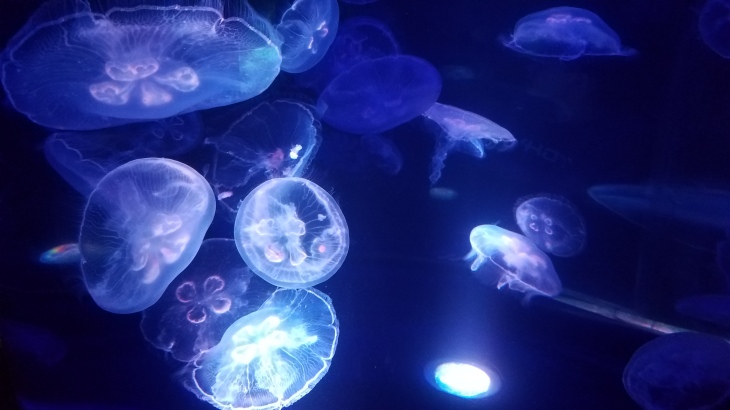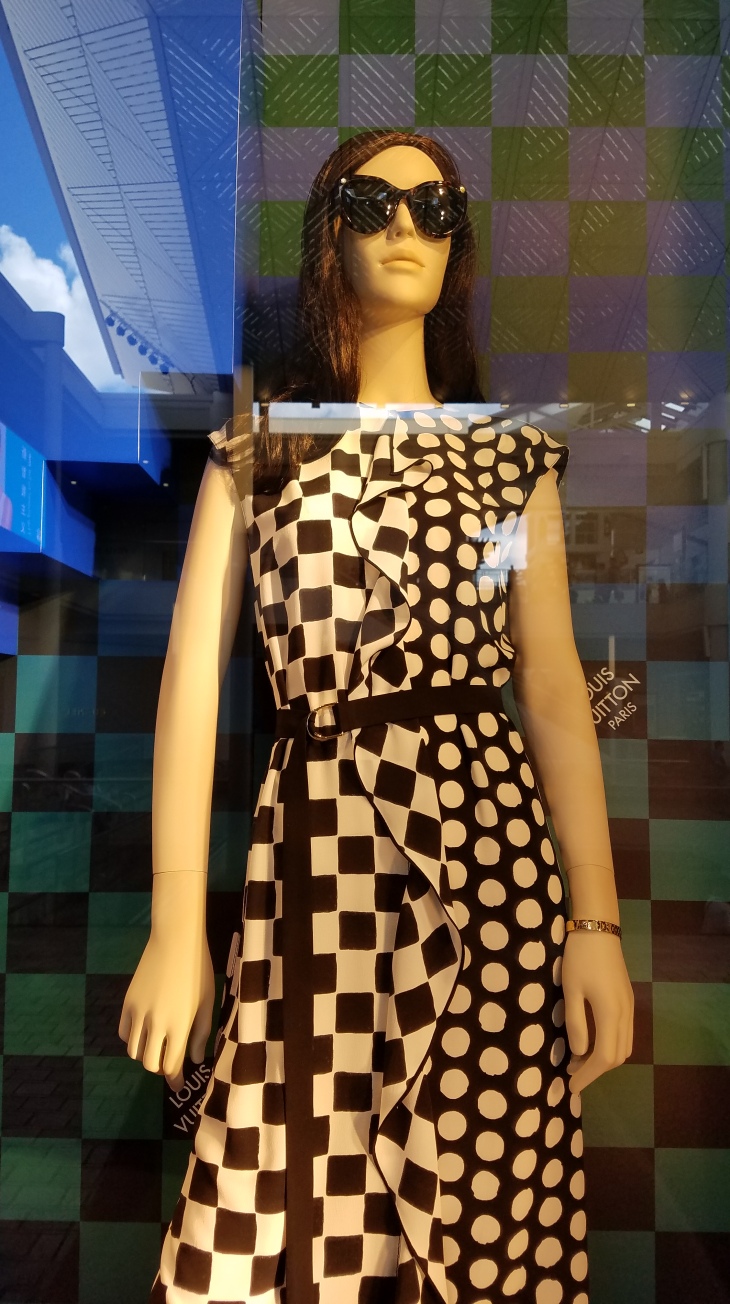Mark Liberman’s post on recursive neural network poetry inspired me to make some poetry of my own. The following are “recursively induced hallucinations” created when you repeatedly enter the same 1-3 characters into a machine translator like Google Translate. Some languages, like Japanese, Korean, and Hebrew, work very well for this; others, like English and Hawaiian, don’t.
Lorca this ain’t, but these poems do have a bricolage-esque charm. Many of the poems sound a little like Radiohead lyrics, which led me to calling these “Okei Computer” poems.
ごじ (misprint)
ごじ repeated 30+ times (with an errant こ in there that I added out of boredom) yielded this encouraging suggestion:
Take a nice tiger day full of fish. Enjoy your warmth, gorgeousness
Repeated 90 times, the result is:
Good luck juggling fireproof gigantic-scissors
Take a nice day tiger full of fish. Take a nice day tiger full of fish.
POWERFOLDERINGLAND TASTOOGOOGLE
Less is more with a lot of these recursion poems. Here’s the result I got after 445 repetitions of ごじ:
Take a nice day tiger full of fish.
Take a nice day tiger full of fish.
Take a nice day tiger full of fish.
Take care of yourself for a long time and more, and it will be grateful. Take a nice day tiger full of fish. Take care of yourself and awaited jumps and gloves.
Toshigamago Tamagotago Trolling
Take a nice day tiger full of fish.
Take a nice day tiger full of fish.
Take care of yourself and awaited jejoshigamigoto fireworks
Take care of a lot of nice thumbs and godii drifts.
Take a nice day tiger full of fish.
Take a nice day god blot.
Taiwara roaring god …
Take a peek at you and yourself, sorry about the blistering sky.
じ じ じ じ じ じ じ じ じ じ じ じ じ ね
Take a nice day tiger full of fish.
Take care of yourself for the nice day and long luck.
Take a nice day tiger full of fish.
Hoshigo Taisamago Tsiragoji
“God blot” and “blistering sky” are nice touches, but the rest is a bit dull. I have no idea where that ね character came from. Not the original text!
かみ (God, spirit)
かみ recursion reads like Harry Crosby by way of a zen monastery:
Bodily Kamikami
Human Body Human Body Human Body Human Body Human Body Human Body Human Body Human Body
Treatment Knick Bending Knick
Bending Knocking Body Hold Knocking Bite God
Knakwhe ripples
Kamikami Kamikami Treble Knick bite
Kemonoma Kamikami Treating Evaspace
Knicking Knicking Knicking
Knicking Knicking Knicking Knicking Knicking Knocking Knaming
Longer sets mean more of the same: “Knick Bending Knick Bending Knocking Body Hold Knocking Bite God Knok god Komigon Kamikre Kamikre Treble Holds it Bodily Kamikami Human Body Human Body Human Body Human Body…”
Is this a koan for MMA fighters or the DYEL set? Maybe it’s the inner monologue of narcissists who see themselves, and by extension their bodies, as God-like? Probably not!
いけ (pond)
いけ recursions: “Beautiful woman soup” (10 repetitions), “I’m sorry. I’m sorry. I’m sorry. I’m sorry” (25), and this dirty-minded poem (50):
Sexual dream nnessality
Senseist Adeleto Assistant
Living Pubic Hair
Dream Sex Action
Yes Yes Seminate Senseism
Looks safe
Miles better than “Sex Junk” (which isn’t saying much). I’d like to know what “Senseism” is though. A devotion to sensual pleasures? The latest academic craze? A get-off-the-internet movement? (I could get behind that.) How about all of the above?
ださ
And here’s my favorite okei computer poem, based on several different ださ recursions:
Today I’m getting out of trouble.
I’m sorry for bleeding for you. I’m sorry. I’m sorry.
Please be on the way, please do not hesitate to us, please do not be afraid of anything, please do not hesitate to call us for anything we have done.
Please do not bleed it please it will get out of my mind.
Please do not be afraid. Please do not be afraid of me.
I’m sorry I got out
I’ve gotten out
For now I’m getting out of trouble.
Please do not hesitate to ask me, please do not hesitate let me know I’m sorry for anything
I’m sorry for bleeding out.
Please do it. It will get out of hand and it will be awaited in a moment and it will be awaited in dreams.
It’s been awaited for a long and wonderful tide.
I am ashamed.
ください means “please” so it’s not surprising you see lots of “pleases” in the translated text. I wonder where the references to bleeding and trouble come from, I can’t find words with equivalent meanings that include ださ or さだ. Maybe I’m not looking hard enough.
There you have it. No need to actually learn Japanese, memorize (and forget, and re-memorize) Kanji, wrestle with conjunctions, or practice reading, speaking and listening to the language. Instead, just go up to the nearest robot (or artificial neural network) and say the same phonemes over and over again. With luck you’ll be directed to a dream sex action, a beautiful woman soup, or a blistering sky.


























